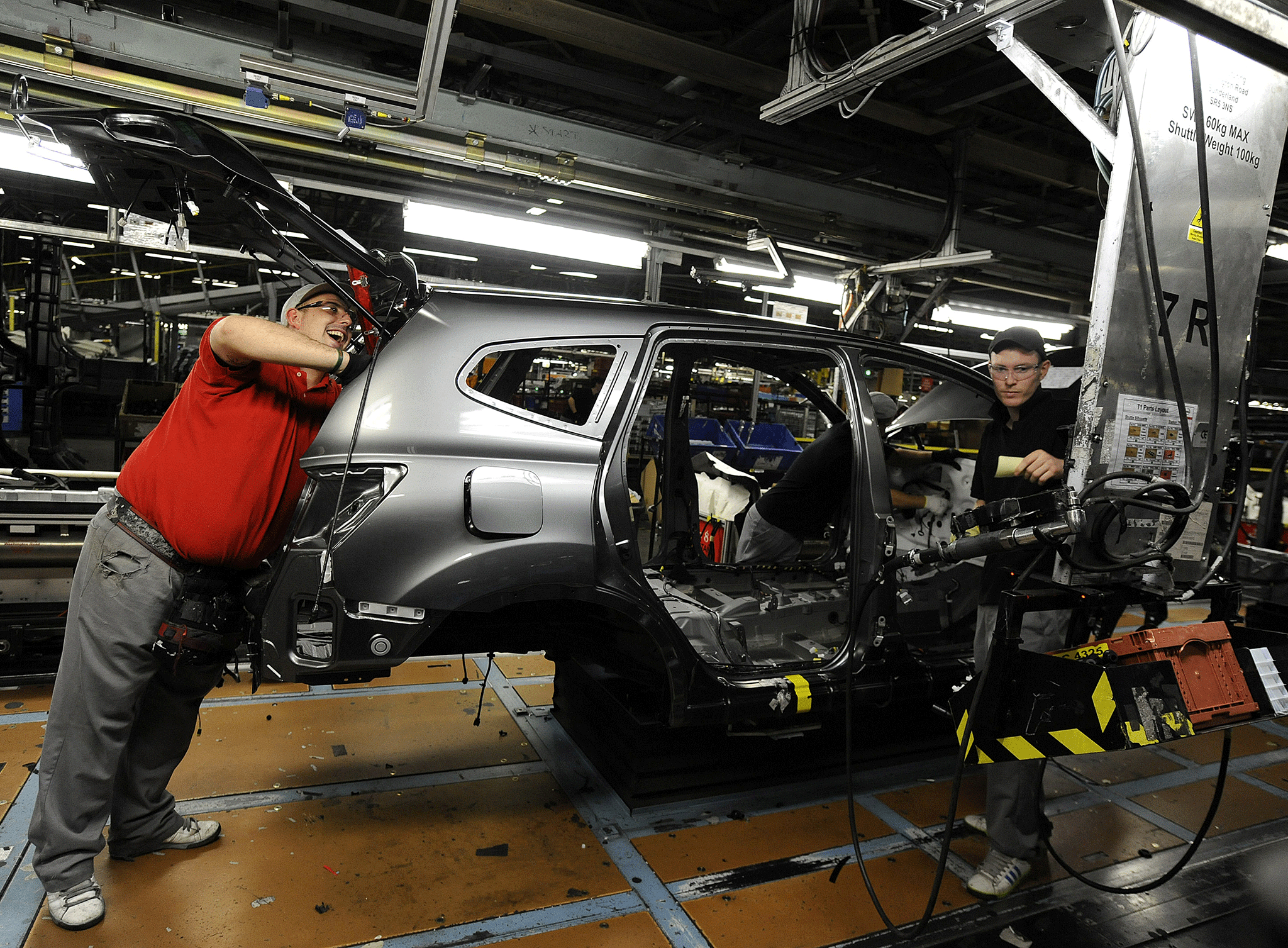Brexit latest: UK manufacturing output unexpectedly fell in May adding to impression of weakening economy
Exports and construction also performed weakly in the latest batch of data from the Office for National Statistics

The output of the UK’s manufacturers unexpectedly fell in May, according to the Office for National Statistics (ONS), adding to the impression of a weakening economy ahead of Brexit.
Output declined by 0.2 per cent in the month, exactly cancelling out April’s increase.
City of London analysts had expected a 0.5 per cent rise and the data is worse than suggested by recent surveys.
The ONS said that the largest contributor to the fall was from car markers, where output slid by 4.4 per cent.
The broader measure of industrial output was also down 0.1 per cent, confounding expectations of a 0.4 per cent expansion.
Manufacturing accounts for around 10 per cent of the UK economy and total industrial production 15 per cent.
Slipping back

The wider economy is estimated to have grown by just 0.2 per cent in the first three months of 2017 and the latest industrial data will increase fears that the second quarter will also be weak.
“Based on today’s data and the business survey results for June, we now think that industrial production is likely to have contracted by 0.5 per cent in Q2. And though an improved performance from the services sector will provide some support, GDP is likely to have grown by just 0.3 per cent with the risks to that projection skewed to the downside,” said Howard Archer, economist at the EY ITEM Club.
Senior economist Samuel Tombs, of Pantheon Macroeconomics, said the disappointing manufacturing data added weight to the likelihood that the Bank of England would not raise interest rates in August, despite pressure building from some members of the Monetary Policy Committee for a hike to curb inflation, which reached 2.9 per cent in May.
The pound fell back by 0.4 per cent to $1.2916 in the wake of Friday’s data as traders adjusted back their expectations of a tightening of monetary policy.
There had been hopes that the sharp depreciation of sterling in the wake of last year’s Brexit vote would help the UK’s exporting manufacturers.
But while there was a 1.2 per cent surge in manufacturing output in the final quarter of 2016, the growth rate slipped to only 0.3 per cent in the first quarter of 2017.
And manufacturing exports have undershot hopes.
Separate data from the ONS on Friday showed total exports rose only 0.8 per cent in the three months to May while imports were up 2.1 per cent.
That means the trade deficit widened to £8.9bn, from £6.9bn in the previous quarter.
Manufacturing exports were 3.2 per cent higher over the period.
ONS data on Friday also pointed to a 1.2 per cent decline in UK construction output in the three months to May, the weakest performance since September 2012, with repairs and new work both dragging.
“The construction sector now is feeling acutely the adverse impact of Brexit uncertainty on the willingness of households and firms to make long-term financial commitments,” said Mr Tombs.
Join our commenting forum
Join thought-provoking conversations, follow other Independent readers and see their replies
Comments